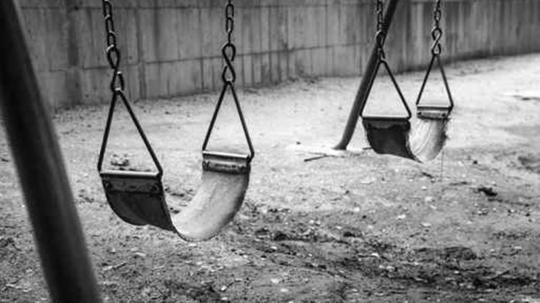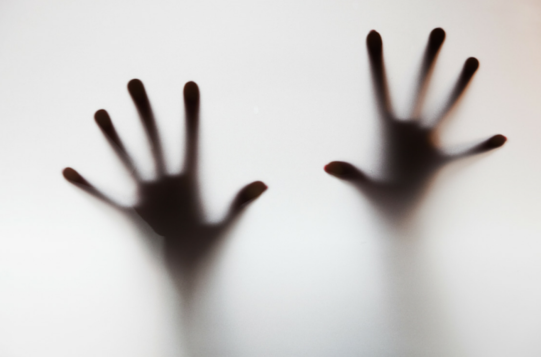Borderline Personality Disorder is a very intense disorder of behaviour and intensified emotions, often described by medical professionals as a roller coaster. Trauma and other factors contribute to the formation of ones personality, and borderlines experience extremes daily. Though the disorder may not be seen on the exterior, it is very real and is hard for anyone to understand, even one living with the condition.
The following are common daily occurrences for the average borderline, and may help you to understand the condition better.

Fear of Abandonment. The most common Borderline trait is the fear of abandonment, and it is an everyday occurrence. As people grow older, they realize that people leave their lives, but we have witnessed it repeatedly in unnecessary forms. It could just be assumed abandonment or, other situations may feel like it. Having to leave a phone call, a coworker leaving work or having to say goodbye to a guest, though inevitable, can feel like abandonment. It is a repetitive pattern we’ve experienced which may seem irrational, but is a true fear.

Unstable and Intense Emotions. It is no secret that borderlines can climb the emotional ladder and come down again in a matter of seconds. It may be an overwhelming trait, but it is hell to live with. Our emotions fluctuate and they lean so far to extremes that we may not be able to cope. A negative comment from a friend can upset us at first, and then spiral out into self-harming thoughts and behaviours. In very intense cases, the individual may not be able to function in everyday activities and may require disability funds.

Feelings of Emptiness. Our intense emotions unfortunately includes emptiness. We may lie there, emotionless, trying to muster up reason for our living and life itself. Being empty can lead someone to risky behaviour and dissociation to retrieve feeling. Dissociation cannot be entirely controlled, but ones body resorts to this to escape trauma and an overflow of emotions. Emptiness can quickly lead to suicidal thoughts and actions as it can be mistaken as worthlessness, thus being a very dangerous emotion.

Anxiety. Not all borderlines have been diagnosed with an anxiety disorder, though most do experience it. We constantly experience fear and worry. We stress over other people’s thoughts and emotions in response to our own, becoming terrified of what they could do. We understand that our vulnerability can be used against us and we may end up hurt. Not to mention, there is anxiety revolving everyday activities, along with overanalysing everyone around us. We are apprehensive of the possibility of someone not liking us along with their ability to harm us, which is ultimately terrifying.

Self-Doubt and Self-Hate. Everyone doubts and judges parts of themselves they don’t love, but those diagnosed with Borderline Personality Disorder experience it on an overwhelming level. We are uncertain about ourselves, our capabilities and our talents. Most of us have been continuously reminded in childhood of our wrongs, with our goods taking a back seat. The lack of acknowledgement of accomplishments in our childhood make it hard for us to see how amazing we really are. This self-doubt can affect our everyday functioning as we may not believe we are capable of handling phone calls, writing something down or preparing something for someone. When these emotions intensify, we become extremely self-destructive and implode, causing dangerous outcomes and needs for hospitalization. Understanding that we are valid human beings takes time, but can be achieved with constant Dialectal Behavioural Therapy.

Boredom. Enduring boredom with Borderline is a complicated struggle. It is just as intense as any other emotion. Our response to this can be very unhealthy. To cope, we respond in extreme ways that are often self-destructive. Commonly, we turn to alcohol, drugs, risky sex, overspending, gambling and poor career decisions, all to reach satisfaction.

Suicidal/Self-Harm Thoughts. It will never be easy to swallow, but we face this daily. It is agonizing to fight, but most of us manage to see the end of the day due to our strength and resiliency. We often consider these as options as a way to cope, but we fight our hardest not to resort to them.

Identity Struggles. Have you ever noticed someone with Borderline hop job to job, getting invested in multiple hobbies, trying to start a career under a specific light, but quickly switching to a new approach? It isn’t strange for diagnosed BPD individuals to do this, and it can be draining to do. We may crave a label to identify us, so we can understand ourselves better, but it usually leaves us lost. It is a way to combat emptiness and boredom.

Paranoia and Sensory Overload. Borderline Personality Disorder may not be a psychotic condition, but we are subject to slight psychotic symptoms. In states of worry and fear, we may become overly aware and paranoid, believing that we are being stalked, or someone’s next victim. When out at a local store, we can stress over the amount of noise and crowds, along with vivid colours and brash movements. This could be a subconscious way to cope with anxieties and mistrust.

Rejection from Medical Professionals. The majority of borderlines who have sought out medical attention can tell you that you will be denied and stereotyped at one point for your disorder by mental health and medical professionals. There is a large stigma around BPD and most professionals do not want to work with us because of the intense emotions, dependencies and constant suicidal feelings.
As sad as it is, they would be liable for our actions, especially if we threaten suicide and they don’t take us seriously. BPD individuals make many threats because of emotional intensity, and they cannot send us to the hospital every appointment, but a misassesment could cause them an upheaval of legal problems. It is possible to find a therapist that will work with Borderline, but it may be a struggle if you haven’t begun recovery as they will refuse to engage the comfortable Borderline behaviours we are accustom to.
Being refused treatment can bring us down and make us believe that we aren’t worthy of help, but we are, and we deserve to feel better. Attending Dialectal Behavioural Therapy regularly and practicing healthy coping mechanisms can be the path to a healthy and happy lifestyle.

Wow this is totally me and that’s exactly how I live everyday and it’s awesome to see it in writing
LikeLiked by 1 person
This was me and at times still is have u tried dbt training
LikeLike
I completed DBT training and it has made a significant difference.
LikeLiked by 1 person
This is one of the most well written and accurate article’s I’ve read on BPD.
LikeLiked by 2 people
Thank you so much, Stella! That means the world!
LikeLike
I experience the majority of these things every day. I get exhausted daily from keeping these emotions in check, but because I have an incredibly understanding psychiatrist and an equally as awesome therapist, I have learned skills that enable my life to be more balanced and in control. Thanks for a great article that explains exactly how those of us with BPD feel!
LikeLiked by 2 people
I am very glad that you have a helpful support system in place! Borderline can be very hard to deal with and it is important to have these supports. I’m glad that you could benefit from the article.
LikeLike
Spot on. It seems an awful lot on BPD written online would lead the lay person to believe it only affects females. Not true!! I just wish I could find someone locally who could offer me DBT – it’s stronger pills or nothing!!
LikeLike
Hey Tony! The DBT that I have taken can be accessed through this book http://dbt-cbt-workbook.com/ . It has helped me wonders, though, be prepared for it to be difficult to sift through. And you are correct, BPD does not only affect females, and there needs to be more gender neutral information available.
LikeLike
I have suffered with this in silence for many years When I read the 10 things borderlines it brought tears to my eyes.
I walk through this life struggling just to live every day.
LikeLiked by 1 person
Wilma, you are not alone.
LikeLike
Excellent article
LikeLiked by 1 person
Thank you so much!
LikeLike
Reblogged this on Mad2write Blog and commented:
One of the best articles I have seen. Describes exactly day to day struggle living with bpd
LikeLiked by 1 person
We appreciate this greatly!
LikeLike
A great article for people trying to understand BPD without having suffered from it themselves. BPD is something I’ve dealt with for most of my life. While it is always there, I consider myself to be, for the most part, high functioning. I found meditation to be incredibly helpful as it helped me develop a stronger awareness of my moods that, in most instances, gives me enough time to focus on emotional control before I become overwhelmed. This doesn’t always work and when it does there are varying degrees of success. Not sure if this will be helpful to anyone but it has helped me.
I must admit though, that I’m not a fan of these types of article. Detailing the symptoms that I endure offers me no solutions, and through personal experience I’ve found that when I start reading articles like this, I often begin dwelling on the subject and find that, for a time, it becomes much more difficult to maintain a any semblance of emotional control. I have noticed similar behaviour in friends that have BPD. When they hit a rough patch their social media feeds become a litany of articles on the symptoms of BPD or on tips for living with/handling/dating people with BPD. I cannot speak for those people, but personally I’ve found that if I allow myself to fall into that obsessive focus, it feels as though it creates a cognitive feedback loop. Focusing on the symptoms intensifies my emotional instability which in turn intensifies my obsessive focus and so on. This self destructive cycle leaves me entirely overwhelmed by an intense emotional maelstrom, recovering from which can take days and leaves me feeling fragile and exhausted.
I have to stop here as I can feel it getting to me a little already. I would greatly appreciate any feedback, questions or thoughts on my experiences and I will endeavour to reply as fast as I can.
Thank you
LikeLiked by 1 person
We understand how posts like these can be detrimental to some individuals, but we also understand that these can help some who feel lost, alone or misunderstood. We have other posts on the blog that are self-help guides instead of symptom description. We try to have articles available to help everyone.
LikeLike
I wasn’t having a go mate, just explaining why I don’t like them. More than anything I was curious to see if anyone else had similar experiences and to discuss my views with other BPD diagnosed people. Oh and I get how this article can help those “who feel lost, alone or misunderstood”, but those feelings are not mutually exclusive to the detrimental effects. And let’s be honest, most people with BPD feel that way. Frequently. So the sweet relief such articles bring may for many be laced with poison so to speak. Like I said, not having a go or trying to be excessively critical, but I think these are ideas that need to be discussed.
Peace
LikeLike
Great article
LikeLiked by 1 person
Thank you so much!
LikeLike
Great article thank you. Just recently diagnosed with BPD after years of feeling something wasn’t right. This article and others like it help to understand myself better. With time and treatment I hope I can live a normal life x
LikeLiked by 1 person
I am so glad you could relate to this article! I hope you can continue to understand this mental illness, and be able to overcome it with patience and dedication!
LikeLike